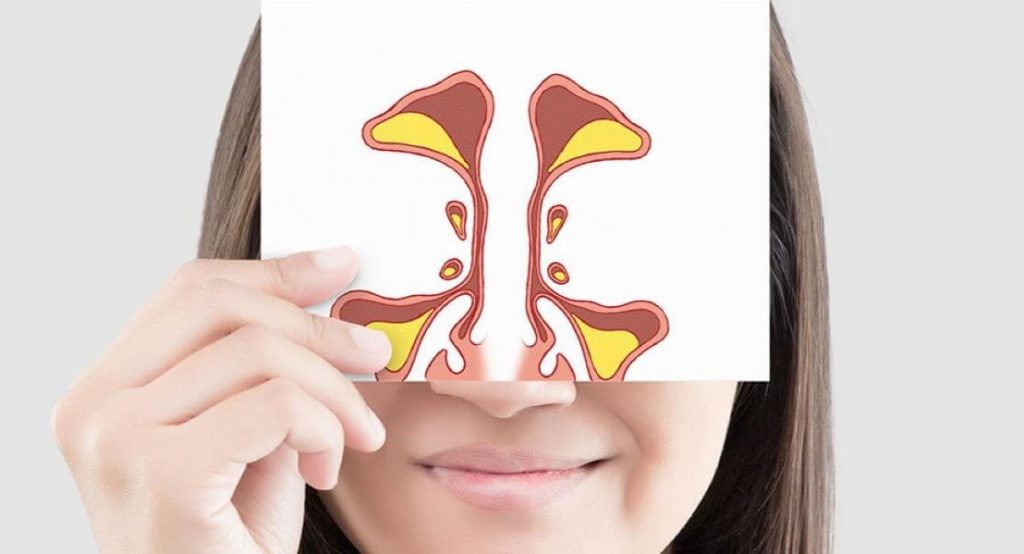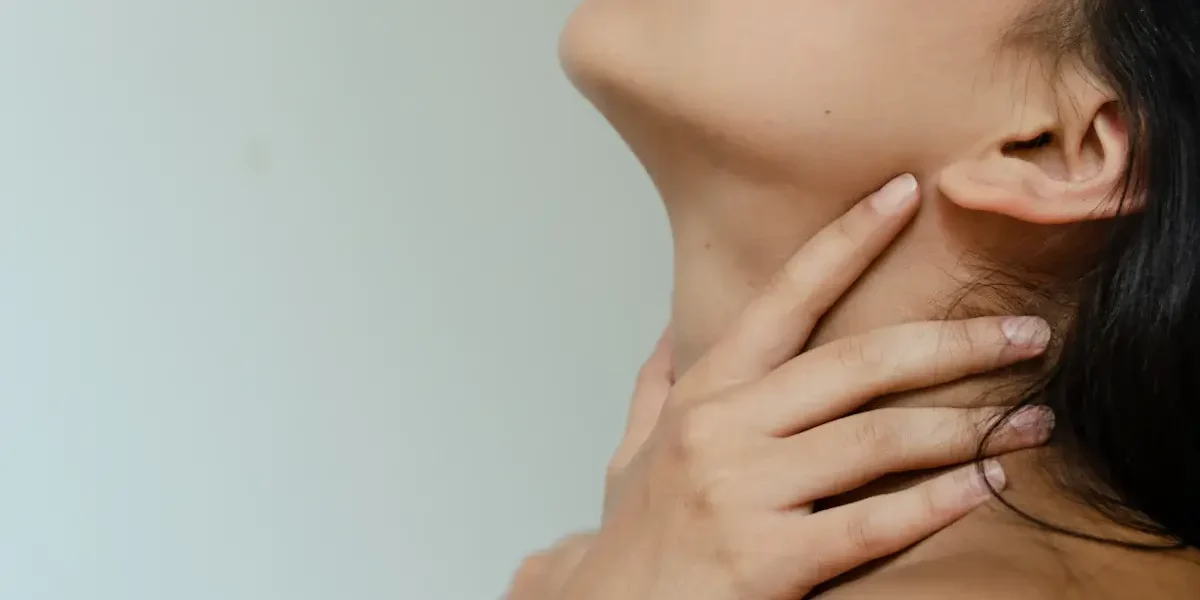At Pikes Peak ENT, Allergy, and Asthma, we understand how frustrating it can be when something as simple as breathing feels difficult or uncomfortable. If you’re struggling with nasal congestion, frequent sinus infections, or trouble breathing, you may be dealing with a condition called a deviated septum. This is a common issue that affects many people, but it’s not always easy to recognize or understand. We’re here to guide you through what a deviated septum is, what symptoms to look for, and the various treatment options available to help you breathe easier and feel your best.
As your healthcare partners, we know that navigating medical issues can be overwhelming, and we believe that by empowering you with the right information, we can help you take steps toward better health. Whether you’re just beginning to notice symptoms or you’ve been struggling for years, our team at Pikes Peak ENT, Allergy, and Asthma is here to support you every step of the way.
What Is a Deviated Septum?
A deviated septum occurs when the thin wall (called the nasal septum) that separates your nasal passages is displaced to one side. Ideally, your septum divides the nose evenly into two nasal passages, but in some cases, it can lean or shift to one side, making one of your nasal passages smaller than the other. While a slight deviation is common and doesn’t usually cause problems, a more significant deviation can lead to breathing difficulties, chronic nasal congestion, and other uncomfortable symptoms.
A deviated septum can happen due to various reasons. Some people are born with it, while others develop it after an injury or trauma to the nose. The degree of deviation can vary greatly from person to person, so while some may have no symptoms at all, others might experience significant issues that affect their daily lives.
If you’re wondering whether you might have a deviated septum, it’s important to recognize the symptoms and understand the potential causes. The good news is that treatments are available to help you manage the condition and improve your quality of life.
Common Symptoms of a Deviated Septum
Living with a deviated septum can feel frustrating, especially when it starts to interfere with your daily routine. You may find yourself experiencing difficulty breathing, a persistent feeling of nasal congestion, or even frequent sinus infections. These symptoms can range from mild to severe, depending on the degree of the deviation.
It’s not uncommon for patients to think they’re dealing with allergies or a cold when, in fact, a deviated septum is the underlying issue. Recognizing the symptoms is the first step toward getting the right treatment.
Here are some of the most common symptoms associated with a deviated septum:
- Difficulty breathing through one or both nostrils: You may notice that one side of your nose feels more blocked than the other, making it harder to breathe, especially during exercise or while sleeping.
- Frequent nasal congestion: Chronic congestion is a common complaint, often leading to mouth breathing, which can be uncomfortable and lead to dry mouth.
- Recurrent sinus infections: A deviated septum can contribute to poor sinus drainage, increasing your risk of frequent sinus infections, which can be painful and disruptive.
- Nosebleeds: The uneven airflow caused by a deviated septum can dry out your nasal passages, making them more prone to bleeding.
- Noisy breathing during sleep: Some people with a deviated septum notice that their breathing becomes noisier, especially when they’re lying down, which can affect the quality of their sleep.
- Facial pain or headaches: Chronic nasal blockage can lead to pressure build-up in your sinuses, contributing to headaches or facial discomfort.
Common Causes of a Deviated Septum
Understanding the root cause of your deviated septum is crucial in finding the right treatment. In some cases, you may know exactly when the deviation happened, like after an injury, while in others, it may have been present from birth.
Here’s a closer look at some of the common causes of deviated septum:
- Congenital condition: Many people are born with a deviated septum. It can occur during fetal development or as part of the natural growth process, with no external injury involved.
- Injury to the nose: Trauma to the nose is a common cause of a deviated septum. This could result from an accident, sports injury, or even a minor bump that you may not have thought much about at the time.
- Aging and nasal structure changes: As you age, your nasal structures may change slightly, and what was once a mild deviation can become more pronounced, leading to symptoms that weren’t noticeable in earlier years.
Treatment Options for a Deviated Septum
There are several treatment options available for managing the symptoms of a deviated septum, ranging from simple home remedies to surgical intervention. At Pikes Peak ENT, Allergy, and Asthma, we work with you to find the best solution for your unique situation, ensuring you feel informed and supported every step of the way.
Natural / At-Home Remedies
If you’re looking for non-invasive ways to manage your symptoms at home, there are a few options that may provide some relief. While these remedies won’t fix the structural problem, they can help alleviate discomfort temporarily.
- Saline nasal sprays: Using a saline spray can help keep your nasal passages moist and reduce inflammation, making it easier to breathe.
- Humidifiers: Running a humidifier in your bedroom, especially during dry months, can prevent your nasal passages from drying out and reduce the risk of nosebleeds.
- Nasal strips: Nasal strips can be worn at night to help open your nasal passages and improve airflow, which may reduce snoring and improve your sleep quality.
Prescription Options
If your symptoms are persistent and home remedies aren’t providing enough relief, your doctor may recommend medical treatments that can help. These are typically used to manage symptoms rather than fix the structural deviation itself.
- Nasal corticosteroids: A nasal spray that contains corticosteroids can help reduce inflammation in your nasal passages, allowing you to breathe more easily.
- Decongestants: Decongestants can provide temporary relief by reducing swelling in your nasal tissues, though they are not a long-term solution and should be used sparingly.
- Antihistamines: If you also have allergies, antihistamines can help reduce allergic reactions, which may worsen your nasal congestion and other symptoms.
Surgical Options
In cases where conservative treatments don’t provide enough relief, surgery may be the best option to correct a deviated septum. Septoplasty is the most common surgical procedure used to straighten the septum, allowing for better airflow through your nasal passages.
Surgery might be recommended if you experience:
- Severe breathing difficulties that affect your quality of life
- Frequent sinus infections that don’t respond to other treatments
- Chronic nasal congestion that hasn’t improved with medication

At Pikes Peak ENT, Allergy, and Asthma, we understand that surgery can feel like a big step, and we’re here to ensure you feel comfortable and confident in your decision. Our specialists will walk you through the process and discuss whether surgery is the right option for you.
When to See a Doctor
While many people live with a deviated septum without ever needing treatment, there are times when it’s important to seek professional care. If you’re experiencing ongoing discomfort or your symptoms are getting worse, it may be time to consult a specialist.
Here are some situations where you should consider seeing a doctor:
- Difficulty breathing that interferes with your daily activities: If you find it hard to breathe through your nose, especially during exercise or while sleeping, it’s time to see a specialist at Pikes Peak ENT, Allergy, and Asthma.
- Frequent sinus infections: If you’re constantly battling sinus infections that don’t improve with medication, a deviated septum could be the cause, and surgery might provide relief.
- Chronic nasal congestion that doesn’t respond to over-the-counter treatments: Persistent congestion can make everyday tasks more difficult. If home remedies and medications aren’t helping, a consultation with our specialists may be necessary.
At Pikes Peak ENT, Allergy, and Asthma, we believe in working closely with our patients to find the best possible solutions for their health. If you think you might have a deviated septum or you’ve been struggling with any of the symptoms mentioned, don’t hesitate to reach out. We’re here to help you get the relief you deserve and to partner with you on your journey to better health.
Take Control of Your Health with Personalized Care
Book an appointment today and let us help you breathe easier, hear better, and live more comfortably with our expert ENT, allergy and asthma care
Sources
- Deviated Septum Overview – https://www.pikespeakent.com/deviated-septum.html
- Mayo Clinic – https://www.mayoclinic.org/diseases-conditions/deviated-septum/symptoms-causes/syc-20351710
- Cleveland Clinic – https://my.clevelandclinic.org/health/diseases/8589-deviated-septum
- WebMD – https://www.webmd.com/allergies/deviated-septum-symptoms-and-causes
- MedlinePlus – https://medlineplus.gov/ency/article/001064.htm
- American Academy of Otolaryngology – https://www.enthealth.org/


